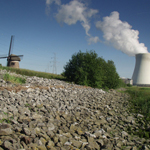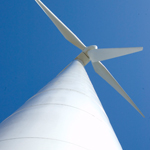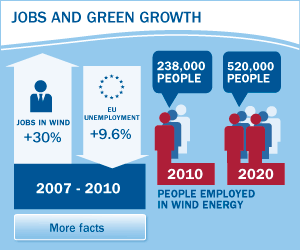 This weekend marked one year on from the terrible earthquake and tsunami in Japan and the ensuing nuclear accident at the Fukushima Daiichi plant. At Fukushima, a series of nuclear meltdowns, equipment failures and releases of radioactive materials made the disaster the largest since the Chernobyl accident in 1986.
This weekend marked one year on from the terrible earthquake and tsunami in Japan and the ensuing nuclear accident at the Fukushima Daiichi plant. At Fukushima, a series of nuclear meltdowns, equipment failures and releases of radioactive materials made the disaster the largest since the Chernobyl accident in 1986.
The media has been awash with stories on nuclear including the Economist which carries a special report into nuclear power under the title “the dream that failed”. It contains many reasons why nuclear is not the answer to the world’s energy dilemma, but the loudest message is on costs, here are just a few quotes:

At the end of last week EU environment ministers met to discuss how to fix the EU’s emissions trading system (ETS) by raising the price of carbon. The EWEA blog spoke to Rémi Gruet, EWEA’s senior regulatory affairs advisor on climate change, to discover just what the ETS does and why the EU needs a higher carbon price.
What is the emissions trading system?
The ETS is a kind of market that puts a price on carbon emissions. Big polluters – mainly the power sector – are legally required to limit their carbon emissions. If they emit less than their limit they can sell carbon ‘permits’ on the market, and if they emit more they can buy carbon ‘permits’.
 This is an excerpt of a post by Heikki Willstedt, director of energy policy, AEE. To read the full post (in Spanish) click here.
This is an excerpt of a post by Heikki Willstedt, director of energy policy, AEE. To read the full post (in Spanish) click here.
Oil has reached €90 a barrel and, when the embargo on Iran becomes effective, there are analysts who predict it will rise to €100 a barrel. Energy imports cost more in Spain than they do in emerging countries, so we cannot improve either our competitiveness or our trade balance deficit. In Spain there are no indigenous oil resources, but we do have the wind to generate electricity. A Spanish wind turbine of 2 MW generates the energy equivalent to 7,000 barrels a year. Wind is the Spanish oil.
The International Monetary Fund defines an oil shock as a 26% or more increase in the price of oil. We have had three: 2008, 2010 and 2011. The current price of oil price in Euros is at a historic high. Just remember that in July 2008 a barrel of oil reached €84 a barrel. We are now 7% above the previous peak price.
 Electricity from wind energy and other renewables is close to one-third cheaper than electricity from a new coal-fired plant, according to a US report published by the Michigan Public Service Commission (MPRS) to the state legislature.
Electricity from wind energy and other renewables is close to one-third cheaper than electricity from a new coal-fired plant, according to a US report published by the Michigan Public Service Commission (MPRS) to the state legislature.
The report found that average costs over the life cycle of renewable energy systems equalled €69.5 per megawatt-hour (MWh) while the cost for a new coal fired power plant totalled €101 per MWh.

Christian Kjaer, EWEA CEO
The European Wind Energy Association is celebrating its 30 year anniversary in 2012. This is an organisation that has gone from humble beginnings when a small group of engineers in Stockholm in 1982 first discussed it, to now speaking for 700 members in almost 60 countries around the world. The growth of EWEA has mirrored the growth of the industry.
EWEA initially represented what was seen as an ‘alternative’ power source. It quickly became the voice of a multi-billion wind industry, one which employs hundreds of thousands of people in the EU and exports European technology around the world.
 This weekend marked one year on from the terrible earthquake and tsunami in Japan and the ensuing nuclear accident at the Fukushima Daiichi plant. At Fukushima, a series of nuclear meltdowns, equipment failures and releases of radioactive materials made the disaster the largest since the Chernobyl accident in 1986.
This weekend marked one year on from the terrible earthquake and tsunami in Japan and the ensuing nuclear accident at the Fukushima Daiichi plant. At Fukushima, a series of nuclear meltdowns, equipment failures and releases of radioactive materials made the disaster the largest since the Chernobyl accident in 1986.






 Comments
Comments



